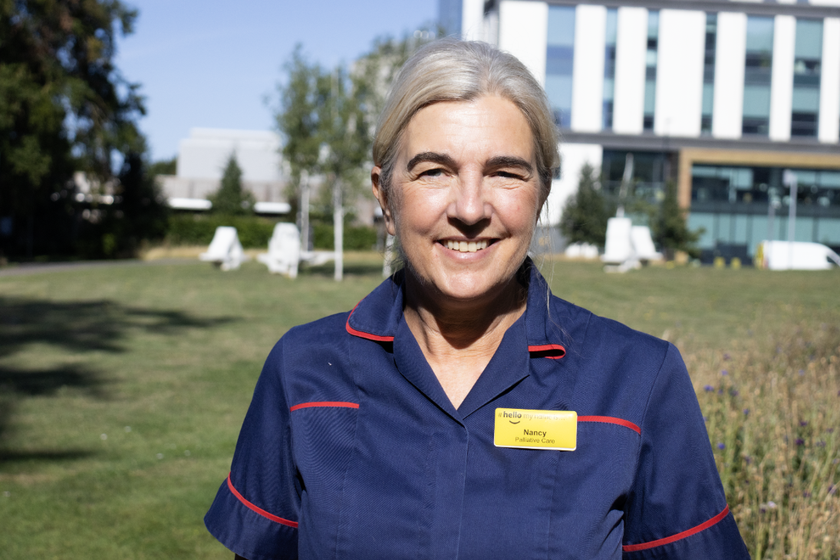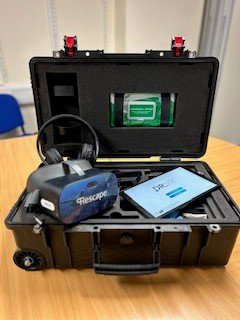Nancy is a clinical specialist nurse in the palliative care team. She has recently been awarded an ARC (Applied Research Collaboration) fellowship by the National Institute for Health and Care Research to continue her work on using Virtual Reality for symptom management.

I am passionate about the diversity and flexibility of nursing and how nurses can drive change and improvement in services. I began my nurse training at the Royal London Hospital in 1985 and completed a postgraduate certificate in training and education whilst working in the CUH urology team in 2018 - being able to share my knowledge and support colleagues has always been a key motivation for me. With all my years of experience I still feel there is more to learn!
In 2019, I joined the CUH palliative care team, where I first became interested in Virtual Reality (VR) through conversations with the psychology team, who were happy for me to plan a service evaluation project on how it may help symptom management. I was lucky and able to put the plan into practice with the support of a Macmillan funded evidence work based learning module. Addenbrookes Charitable Trust (ACT) funded a VR kit loan and with robust IPC measures in place, the project began.

Between June 2021 and August 2022, the palliative care team offered the use of the VR headset to 28 patients a total of 42 times. They were offered a range of relaxing visual experiences, accompanied by commentary or music.
Our evaluation was very positive – we measured patients’ pain score and anxiety before and after the experience and saw a significant reduction in both. I presented these results at the Palliative Care Congress in 2023, and we were awarded best abstract, which was a brilliant reflection on the palliative care team’s work. A short report has subsequently been published in the British medical journal SPC.
I really believe in the difference the VR experience made; patients told us it helped them to relax, and it allowed them to escape the hectic environment of the ward.
It had such an impact on one of our patients that she left a donation to purchase our own VR kit after sadly passing away. Her mother said, “it helped lift her at her lowest point and she wanted other people to benefit from VR”.
Exploring the possibilities of new technology in our service is a positive thing to do in a hard role. It is a highly emotional environment and giving patients the opportunity to make their journey a bit easier feels important. Our approach to palliative care is holistic and offering a VR experience is just one aspect of what we do. It complements an alternative approach to symptom management, and we offer it as an option that works alongside conventional medicine. It would not be used to replace any other therapy or treatment.
This year I am excited to be undertaking an impact research fellowship granted by the NIHR East of England to continue work with VR to help enhance patient comfort. I hope to explore increasing VR’s scope; evidence shows it could potentially be very useful in interventions and procedures, for example for children needing canulation. I would like to generate more VR momentum within CUH, to leave something that will have an impact for patients across the hospital. I am very proud of the work we have being doing in palliative care. Becoming involved in research is a very natural step in my current role as a clinical nurse specialist.

